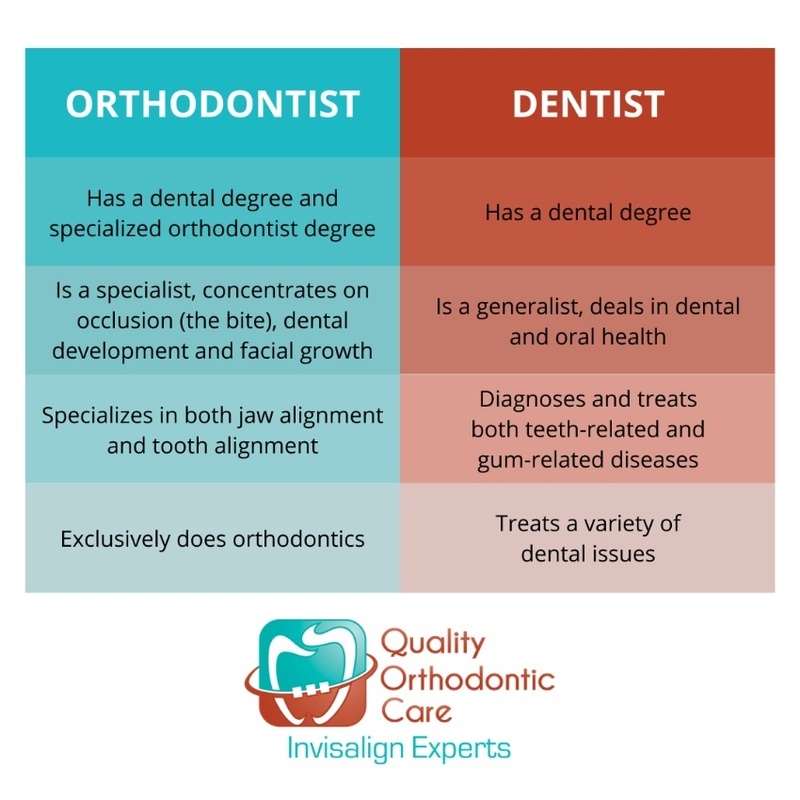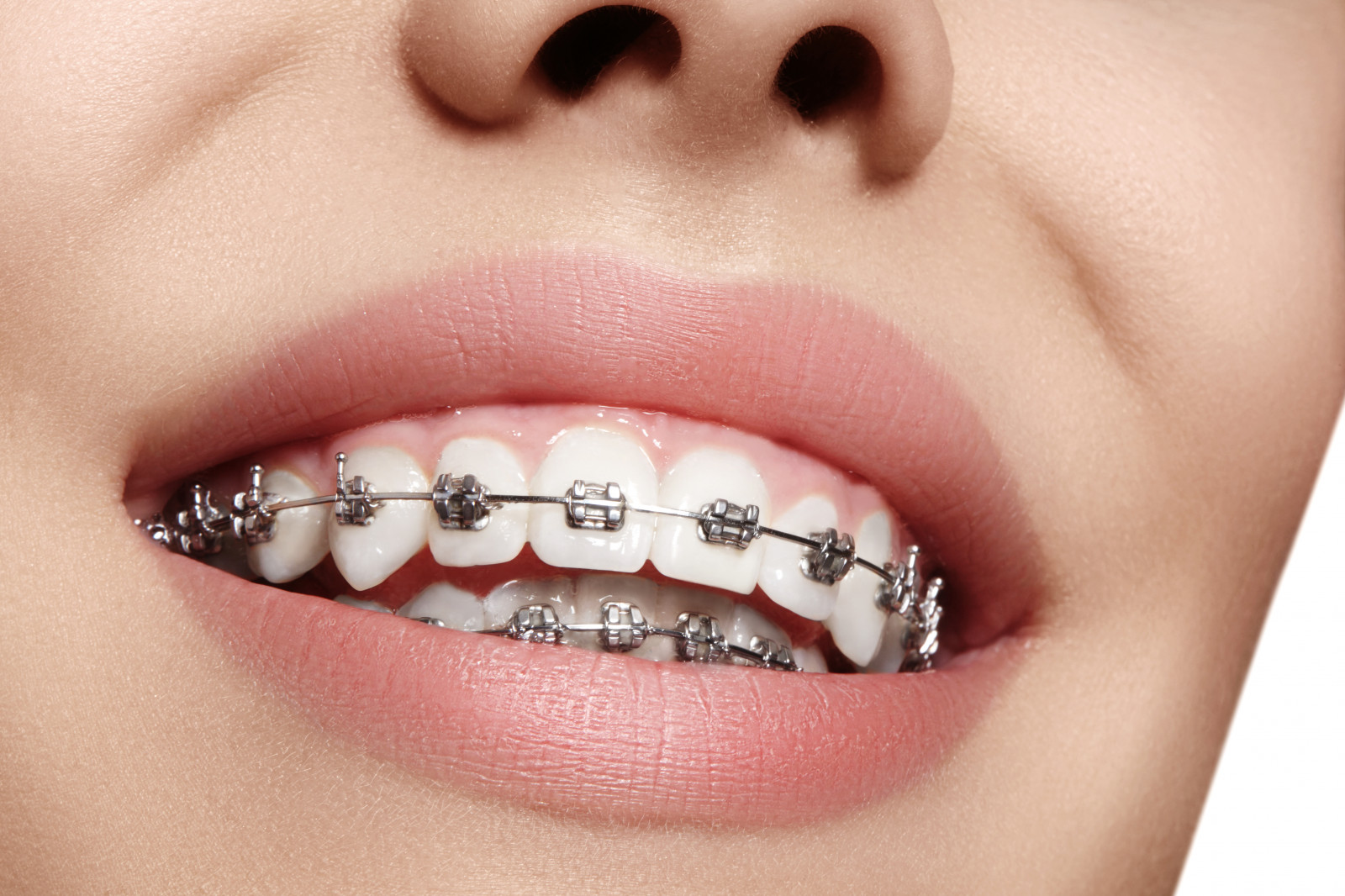Fascination About Causey Orthodontics
Fascination About Causey Orthodontics
Blog Article
Top Guidelines Of Causey Orthodontics
Table of ContentsThe Facts About Causey Orthodontics RevealedSome Known Details About Causey Orthodontics Top Guidelines Of Causey OrthodonticsThe smart Trick of Causey Orthodontics That Nobody is DiscussingGetting My Causey Orthodontics To WorkCausey Orthodontics Fundamentals ExplainedSome Known Details About Causey Orthodontics
What is the distinction between a dental professional and an orthodontist? All dental professionals, consisting of orthodontists, treat the teeth, gum tissues, jaw and nerves.
You can think of both medical professionals who treat gum and teeth problems. The major difference is that becoming an orthodontist calls for a certain specialty in dealing with the imbalance of the teeth and jaw.
Rumored Buzz on Causey Orthodontics
An orthodontist is a dental expert that has gone through training to specialize in the medical diagnosis, avoidance and treatment of abnormalities in the jaw and teeth. Their training consists of dealing with these existing problems. They can additionally determine possible problems in teeth placement that may develop when problems are left without treatment. Orthodontists can help people of every ages.
This consists of all the required education and learning to become a general dental expert. According to the American Trainee Dental Organization (ASDA), it implies you will require to have either a Physician of Medication in Dentistry (DMD) or a Physician of Dental Surgical Treatment (DDS). Simply put, orthodontists need to complete dental school and after that get an orthodontics specialty education and learning.
Some orthodontists also get their masters in craniofacial biology. best orthodontist (https://paste.quest/?03aa70918b510319#ABeeCdyb58vnpFdVtdQL35D4xjMSWVZ7KYzvb8hJ1dFN). Many oral schools provide limited orthopedic training and guideline, which is why general dental experts require to visit orthodontic school after college graduation. Orthodontic residency programs supply intensive training for this sort of oral specialization. These programs focus on 2 particular areas or disciplines: Dentofacial Orthopedics: This study concentrates on directing teeth and jaw growth.
The Greatest Guide To Causey Orthodontics

 These consist of device such as dental braces, retainers and Invisalign. So, what does an orthodontist do, and what do they concentrate on? The general goal of an orthodontist is to enhance a person's bite. Not everybody is born with straight teeth, and an orthodontist will ensure that clients obtain evenly spaced straight teeth.
These consist of device such as dental braces, retainers and Invisalign. So, what does an orthodontist do, and what do they concentrate on? The general goal of an orthodontist is to enhance a person's bite. Not everybody is born with straight teeth, and an orthodontist will ensure that clients obtain evenly spaced straight teeth.
Excitement About Causey Orthodontics
The American Association of Orthodontists recommends your initial check up by age 7. You'll need to see your orthodontist if you have an imbalance in your teeth, likewise recognized as malocclusion. Additionally, if you observe uneven bite patterns, a somewhat irregular jaw, or when your teeth are overcrowded, you will likely need orthodontic treatment.
At Advanced Orthodontics, we give people with a holistic treatment experience. On top of that, we offer flexible therapy schedules, flexible payment options and a fun, satisfying experience. Call ( 480) 357-4900 today for additional information and routine a visit.
An orthodontist is a dental expert educated to diagnose, protect against, and treat teeth and jaw irregularities. They fix existing conditions and are trained to recognize issues that might establish in the future. Orthodontists work with people of all ages, from youngsters to adults. Individuals often link a best smile with health.
The Best Guide To Causey Orthodontics
Malocclusion, or misaligned teeth, can result in oral problems, consisting of dental caries, gum condition, and hard or agonizing eating. But not every person is born with straight teeth. If you have a negative bite or big rooms in between your teeth, you might want to seek advice from a dentist concentrating on orthodontic care.
(Image Credit: DigitalVision/Getty Images) Orthodontists use taken care of and detachable oral tools, like dental braces, retainers, and bands, to transform the position of teeth in your mouth. Orthodontic therapy is for dental abnormalities, consisting of: Misaligned teethBite troubles, like an overbite or an underbiteCrowded teeth or teeth that are too much apartJaw misalignmentThe objective of orthodontic therapy is to improve your bite.
What Does Causey Orthodontics Do?

All orthodontists are dental practitioners, yet not all dental professionals are orthodontists. Orthodontic residency programs provide extensive, focused instruction for dental professionals. They focus on 2 areas: How to appropriately and securely move teeth Exactly how to appropriately lead advancement in the teeth, jaw, and faceOnce an orthodontist has completed training, they have the alternative to end up being board accredited.
Malocclusion leads to tooth overcrowding, an irregular jaw, or uneven bite patterns. Malocclusion is generally treated with: Your orthodontist affixes steel, ceramic, or plastic square bonds to your teeth.
Facts About Causey Orthodontics Uncovered
If you have just minor malocclusion, you may be able to use clear dental braces, called aligners, rather than conventional braces. Some people require a headgear to aid relocate teeth right into line with stress from outside the mouth. After dental braces or aligners, you'll require to put on a retainer. A retainer is a custom tool that maintains your teeth in position.
Report this page